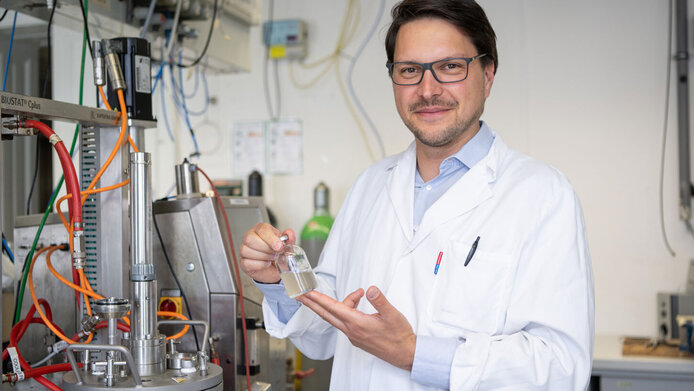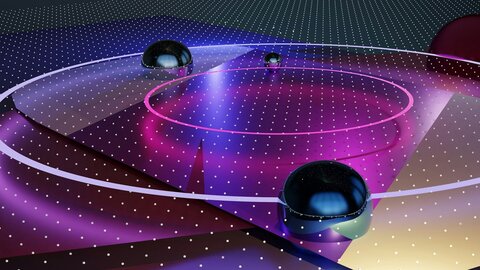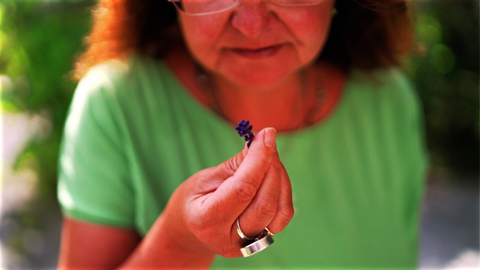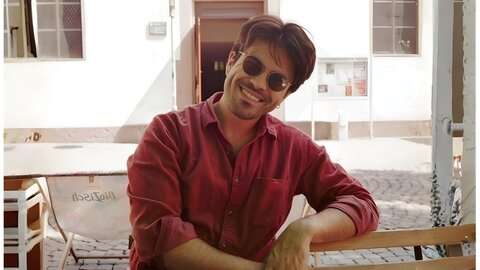An ancient bacterium is making biotechnology more efficient

Mr. Pflügl, your plan is to turn CO2 into biofuel by using bacteria. That would solve many problems we currently face. What obstacles will you have to overcome?
Stefan Pflügl: Biofuels are only one possible application. We are planning to modify natural bacteria so that they can use CO2 to produce a wide range of chemical products and do so using renewable energy. The crucial aspect is making these processes energy efficient. That is what my project is all about.
You are focusing on a particular bacterium that is very old. Why?
Pflügl: This bacterium was first isolated in a bay in the US, where it lives in the mud. What makes these bacteria special is their ability to metabolise unusual substrates such as formic acid. They are able to do this thanks to a metabolic process that evolved in the early days of life on Earth about 3.5 billion years ago, when energy for living things was very scarce. This forced them to take a very efficient approach to their substrates and the energy they contained. This is what we are looking to tap.
The START Prize gives you a total of six years to achieve your goal. What is your approach to the problem?
Pflügl: On the one hand, we are interested in genetically modifying the bacterium. Once we have done that, we plan to develop the accompanying processes. To do this, we will be bringing together people with very different backgrounds, people from microbiology, genetic engineering, but also some people who are experts in process technology and process engineering. In addition, our team will include people who create computer models so that we can develop understanding across the board.
You said that the most important goal is ensuring that these processes are energy efficient.
Pflügl: Exactly. Using fossil resources in industry has resulted in the continued accumulation of CO2 in the atmosphere. We, on the other hand, want to create a closed carbon cycle, which means we take CO2 from industrial sources and convert it into formic acid using renewable energy. We then use the formic acid in the production process. It is important to take advantage of the energy used as much as possible, in other words to turn it into the product, to be able to make cheap mass-produced goods such as fuels. The bacteria help us achieve that.
You already lead a group at the Vienna University of Technology. How will your work change as a result of the START Prize?
Pflügl: For me personally, it gives me an opportunity to continue and expand my work in an excellent environment. In addition, I can now concentrate more in-depth on my core area of research with my own team for six years. That is extraordinary and will provide significant impetus for our work.
You are researching processes that we would like to have available as quickly as possible to combat climate change. How long will it take before your methods can be used in practice?
Pflügl: It's still in the basic research phase. But my goal is to find industry people who are interested in implementing it by the time the project is finished. At the moment CO2 prices are low, and renewable energy is relatively expensive, but the calculus is shifting more in our favour every year. Once renewable formic acid is cheaper than fossil-based formic acid, it will also become economically interesting to focus on it.
What motivates you particularly about this work?
Pflügl: I find the organisms we work with incredibly exciting. And it's nice to tackle such a major area of research head-on and feel that you can make a difference.
Stefan Pflügl conducts research at the Vienna University of Technology (TU) and leads a team for sustainable bioprocesses. After completing his dissertation at the University of Natural Resources and Applied Life Sciences (BOKU) Vienna and after research stays at the University of Kent and the Technical University of Munich, he came back to the TU Vienna, where his work focuses on sustainable biological processes. He uses bacteria to turn residual materials into base products for chemical processes.
The project
Climate change and the increasing demand for chemicals and fuels require processes in which carbon is not released into the atmosphere as CO2 but rather recycled. In many cases, bacteria play a role by converting formic acid obtained from CO2 into base products for the chemical industry. Energy efficiency is a decisive factor here. Biotechnologist Stefan Pflügl focuses on using a bacterium that originated in the early phase of the Earth’s history and can metabolise formic acid in a particularly energy-efficient way.
The START Prize
The START Programme of the Austrian Science Fund FWF is aimed at outstanding young researchers, giving them the opportunity to plan their research over an extended period and with a high degree of financial security. It is endowed with up to EUR 1.2 million and is one of Austria’s most prestigious and most highly endowed awards alongside the Wittgenstein Award.





